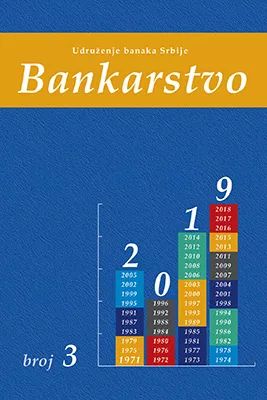DUGOROČNE EFEKTIVNE STOPE POREZA NA DOBITAK U BANKAMA: SLUČAJ REPUBLIKE SRBIJE
LONG-RUN EFFECTIVE CORPORATE INCOME TAX RATES IN BANKS: A CASE OF THE REPUBLIC OF SERBIA
Author(s): Stefan VržinaSubject(s): Economy, National Economy, Financial Markets
Published by: Udruženje banaka Srbije p.u.
Keywords: effective tax rate; corporate income tax; banks; bank taxation; Serbia
Summary/Abstract: The effective tax rate (ETR) is one of the most widely used measures of corporate income tax burdens. Although it is usually calculated at the annual level, the concept of long-run ETRs became popular in the last decade. The objectives of the paper are the comparison of annual and long-run ETRs in banks in Serbia and comparison of the impact of ETR determinants in the short and long run. Research results show that annual and long-run ETRs in banks in Serbia are relatively low. Although the statutory corporate income tax rate is 15%, most observations have ETRs lower than 5%. A considerable portion of the observations have annual ETRs of 0%. Research showed that larger banks have statistically significant higher annual ETRs. However, in the case of long-run ETRs, this finding is not statistically significant. Research results can be of interest for bank management when planning corporate income tax and comparing their tax burden with the industry average, and to national tax authorities when reforming the bank taxation system.
Journal: Bankarstvo
- Issue Year: 48/2019
- Issue No: 3
- Page Range: 12-31
- Page Count: 20
- Language: English, Serbian

